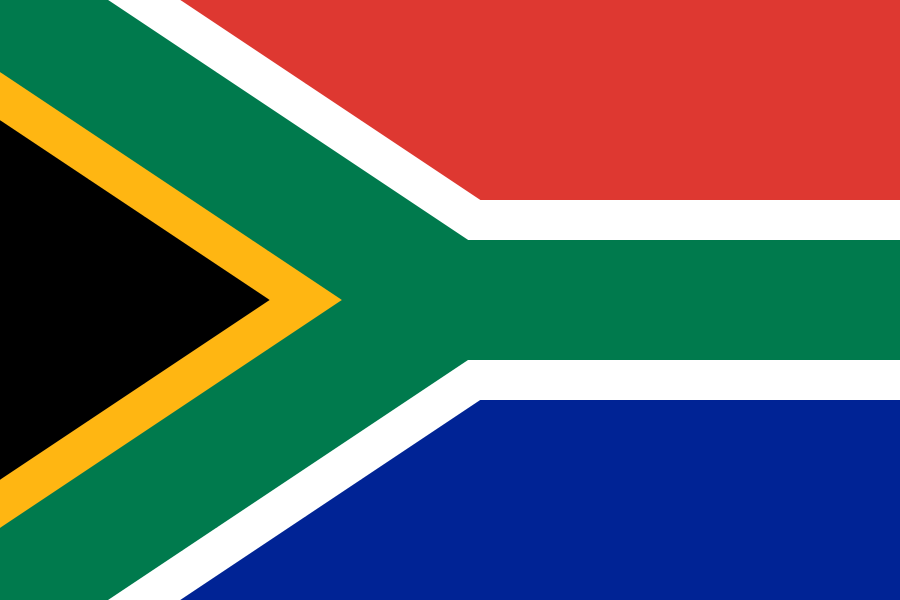Dutch traders landed at the southern tip of modern day South Africa in 1652 and established a stopover point on the spice route between the Netherlands and the Far East, founding the city of Cape Town. After the British seized the Cape of Good Hope area in 1806, many of the Dutch settlers (Afrikaners, called "Boers" (farmers) by the British) trekked north to found their own republics in lands taken from the indigenous black inhabitants. The discovery of diamonds (1867) and gold (1886) spurred wealth and immigration and intensified the subjugation of the native inhabitants. The Afrikaners resisted British encroachments but were defeated in the Second South African War (1899-1902); however, the British and the Afrikaners, ruled together beginning in 1910 under the Union of South Africa, which became a republic in 1961 after a whites-only referendum. In 1948, the Afrikaner-dominated National Party was voted into power and instituted a policy of apartheid - the separate development of the races - which favored the white minority at the expense of the black majority. The African National Congress (ANC) led the opposition to apartheid and many top ANC leaders, such as Nelson MANDELA, spent decades in South Africa's prisons. Internal protests and insurgency, as well as boycotts by some Western nations and institutions, led to the regime's eventual willingness to negotiate a peaceful transition to majority rule. The first multi-racial elections in 1994 following the end of apartheid ushered in majority rule under an ANC-led government. South Africa has since struggled to address apartheid-era imbalances in decent housing, education, and health care. ANC infighting came to a head in 2008 when President Thabo MBEKI was recalled by Parliament, and Deputy President Kgalema MOTLANTHE, succeeded him as interim president. Jacob ZUMA became president after the ANC won general elections in 2009; he was reelected in 2014.
South Africa is a parliamentary republic.
Source: CIA World Factbook
Members:
Resources
Displaying 91 - 94 of 94Delegation of powers and duties under the National Forests Act.
This Notice provides for the assignment of powers and duties vested in the Minister of Water Affairs and Forestry under the National Forests Act, 1998 to SANParks.
Delegation of powers under the World Heritage Convention Act (Notice No. R. 723 of 2002).
With this Notice, the Minister of Environmental Affairs and Tourism delegates powers vested in him other by section 43(1)(a) of the World Heritage Convention Act in Director-General of the Department of Environmental Affairs and Tourism. The powers delegated include authorization and ratification of land claims negotiations and settlement agreements entered into by the Greater St. Lucia Wetland Park Authority in respect of state or private land forming part or affecting World Heritage Sites and of land acquisitions made by the Authority.
Mineral and Petroleum Resources Development Regulations (No. 527 of 2004).
These Regulations prescribe rules relative to various aspects of mining operations to be carried out under licences granted under the Minerals and Petroleum Resources Development Act, such as application for prospecting rights or exploitation rights and relative procedures and requirements, various plans regarding mining to be submitted to competent authorities, environmental reports and statements to accompany the applications, an environmental management programme and environmental management plan, basic requirements for the closing of mines, environmental liabilities, environmental risk
Amendment of the Mineral and Petroleum Resources Development Regulations (No. 1288 of 2004).
These Regulations amend the principle Regulations by providing for procedures for the submittal of claims in accordance with item 12 of Schedule to of the Mineral and Petroleum Resources Development Act. These claims regard compensation of expropriated property. The newly inserted regulation prescribes method and procedures of submittal.
Amends: Mineral and Petroleum Resources Development Regulations (No. 527 of 2004). (2004-04-23)


